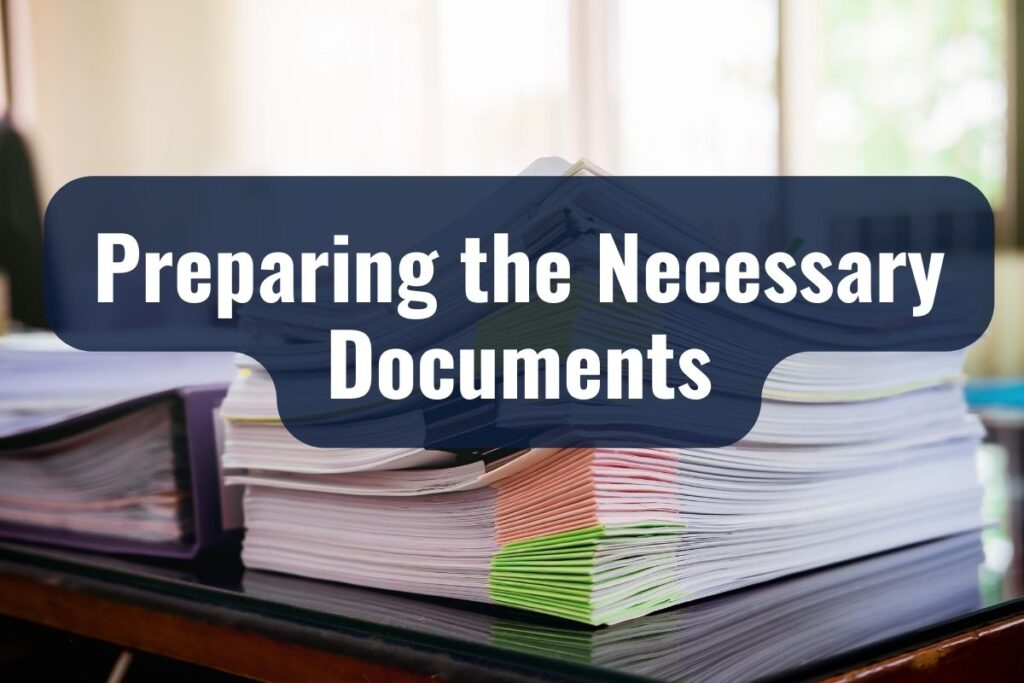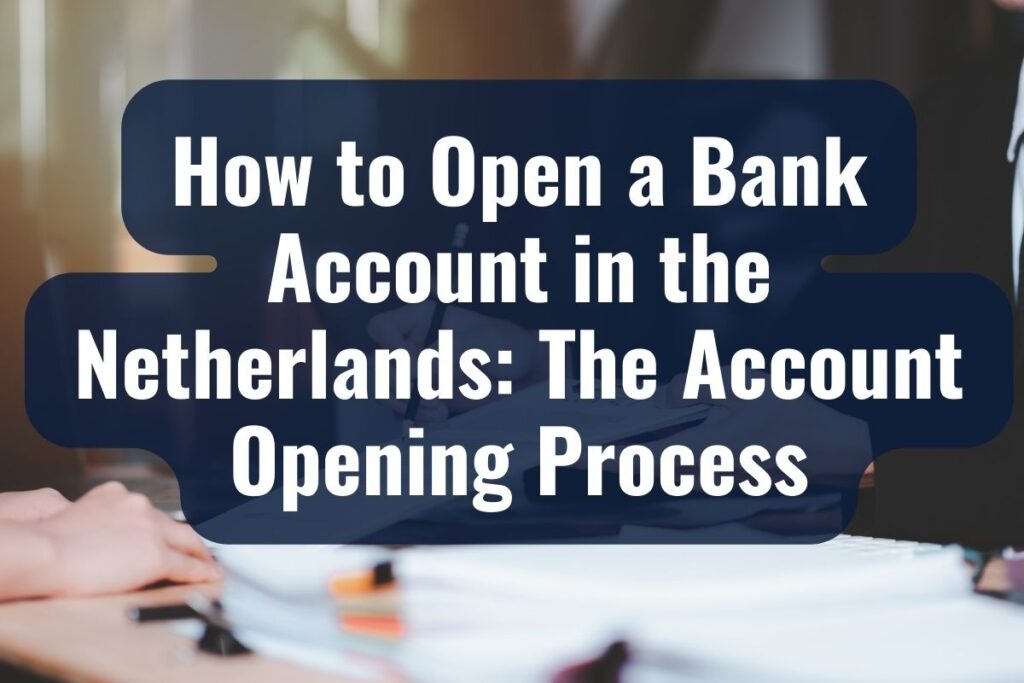Having a bank account is crucial for anyone living in the Netherlands, whether for managing daily expenses, receiving a salary, or transferring money. This guide aims to provide clear, actionable information for expats and internationals who prefer English-language resources.
With straightforward steps and essential insights, you will easily learn how to open a bank account in the Netherlands. Let’s dive into the process, focusing on what you need to know to make informed decisions and smoothly set up your banking in the Netherlands.
KEY TAKEAWAYS
- A variety of banking options caters to different needs and preferences.
- Essential documents include proof of identity, address, BSN, and sometimes proof of income.
- Account choices include current, savings, and international accounts.
- The account opening process is straightforward, with online and in-person options.
- Digital banking offers convenient access to financial services.
- Proactive management and informed decision-making enhance banking experiences.
- Customer support is available for assistance in English.
Understanding Your Banking Options
In the Netherlands, residents have a variety of banking options. These range from traditional banks, known for their extensive branch networks, to online banks that offer the convenience of digital transactions without needing physical branches. Additionally, international banks operate in the country, providing services that might be more familiar to expatriates or those with global banking needs.
A significant number of these institutions offer customer service in English, understanding the diverse population they serve. When selecting a bank, consider the language services and the types of banking products offered, fees, and the convenience of online and mobile banking platforms. This ensures that your banking experience in the Netherlands aligns with your financial habits and needs.
Preparing the Necessary Documents

Opening a bank account in the Netherlands requires presenting several key documents to verify your identity and residency status. These documents are essential to comply with Dutch banking regulations and to ensure a smooth account setup process. Here’s what you typically need:
- Proof of Identity: A valid passport or an EU identity card serves as the primary form of identification. Ensure your identification is current and has all necessary details visible.
- Proof of Address: Banks need to verify your residence in the Netherlands. A utility bill, rental agreement, or official government correspondence less than three months old can fulfill this requirement.
- BSN (Burgerservicenummer): This Dutch social security number is mandatory for almost every form of bureaucracy in the Netherlands, including banking. You receive it upon registering with the municipal authorities.
- Proof of Income or Employment: Some banks may request this to understand your financial situation better. It could be a payslip, an employment contract, or documents showing other sources of income.
For non-EU residents, additional documentation might be necessary, such as a residence permit. It’s advisable to check with the specific bank for any extra requirements or variations in the documentation needed to open an account. Having these documents ready before you start the account opening process can significantly streamline your experience.
Choosing the Right Bank Account
Selecting the right bank account is a crucial decision that impacts your financial management in the Netherlands. Banks offer a variety of account types, each designed to cater to different needs. Understanding these options helps in making an informed choice that aligns with your personal or professional financial goals.
Current Accounts
Current Accounts are the standard choice for daily financial transactions, such as receiving your salary, paying bills, and making purchases. They often come with a debit card and online banking facilities.
Savings Accounts
Savings Accounts offer a way to earn interest on your deposits. They’re ideal for setting aside money for future expenses or investments. Interest rates and terms vary, so comparing options is beneficial.
International Accounts
International Accounts might be preferable for those who frequently travel or conduct transactions in multiple currencies. These accounts can simplify managing your finances across borders but check for associated fees.
When choosing an account, consider factors like the monthly fees, transaction costs, access to ATMs, online and mobile banking features, and customer service in English. Additionally, some banks offer special packages for students, expats, or professionals with specific banking needs.
How to Open a Bank Account in the Netherlands: The Account Opening Process

Opening a bank account in the Netherlands involves a straightforward process, designed to be efficient and user-friendly. Following these steps can help ensure a smooth experience:
- Research and Select a Bank: Start by comparing the services, fees, and account types offered by different banks. Focus on those that provide customer service in English and meet your financial needs.
- Prepare the Necessary Documents: Gather all required documentation, such as your passport or EU identity card, proof of address, BSN, and possibly proof of income. Having these ready in advance streamlines the process.
- Apply Online or Visit a Branch: Many banks allow you to start the application process online, which is particularly convenient. However, some may require you to finalize the account opening in person. Check the bank’s website for specific instructions.
- Complete Verification Processes: Banks may conduct identity verification and document checks. This might involve a video call or providing digital copies of your documents. Follow the bank’s guidance carefully to ensure a successful verification.
- Activate Your Account and Set Up Online Banking: Once your account is approved, you’ll receive instructions on how to activate it. This step often includes setting up online banking, where you can manage your account, make payments, and access other financial services.
An initial appointment might be scheduled to finalize setup and answer any questions. These appointments offer a valuable opportunity to clarify any uncertainties directly with bank staff.
Digital Banking and Online Services
Digital banking and online services significantly enhance the convenience of managing finances for expats in the Netherlands. Banks here offer robust online platforms and mobile apps that allow you to perform a wide range of financial operations from anywhere, at any time. These digital tools are particularly beneficial for those who prefer conducting transactions in English, bypassing language barriers that might exist in traditional banking settings.
Benefits of Digital Banking for Expats
Ease of Use: User-friendly interfaces make navigating your finances straightforward, allowing for efficient management of daily banking activities.
Language Settings: Many banks provide options to use their services in English, making it easier for non-Dutch speakers to understand and use their features effectively.
Common Online Banking Services Include
Transfers and Payments: Easily transfer money between accounts or pay bills online, eliminating the need for physical visits to the bank or post office.
Account Management: Check balances, review transactions, and manage your cards and account settings directly through the app or website.
Customer Support: Access support via chat or email, often available in English, providing quick answers to your questions without needing to visit a branch.
Related: Credit Cards in the Netherlands: Everything You Need to Know
Tips for a Smooth Banking Experience in the Netherlands

For a seamless banking experience in the Netherlands, consider these practical tips:
- Maintain a Minimum Balance: Some accounts may require a minimum balance to avoid monthly fees. Familiarize yourself with your bank’s policy to manage your funds efficiently.
- Set Up Notifications: Activate account alerts for transactions, low balance warnings, and other important notifications. This keeps you informed about your account status and helps in monitoring for unauthorized transactions.
- Explore International Transfer Options: If you need to send money abroad, investigate your bank’s international transfer services. Fees and exchange rates vary, so consider using specialized services like TransferWise or Revolut for better rates.
- Utilize Online and Mobile Banking: Take full advantage of your bank’s online and mobile banking platforms for convenient account management. These services allow you to pay bills, transfer money, and check your balance anytime, anywhere.
- Check ATM Network and Fees: Understand your bank’s ATM network to avoid transaction fees. Some banks offer fee waivers for ATMs outside their network or reimbursements for certain charges.
- Understand the Fee Structure: Review your bank’s fee schedule for account maintenance, transactions, and additional services. This knowledge helps avoid unexpected charges.
- Regularly Update Your Personal Information: Keep your contact details and address up-to-date with your bank. Changes in your personal information can affect account security and the bank’s ability to contact you when necessary.
- Read the Fine Print: Familiarize yourself with the terms and conditions of your account, including interest rates for savings accounts, overdraft policies, and any limitations on transactions.
Contacting Customer Support
Effective communication with your bank is crucial, especially for resolving queries or issues. Most banks in the Netherlands offer comprehensive customer support options, catering to the needs of their diverse clientele. Here’s how to ensure you can get help when you need it:
Customer Service Channels: Banks typically provide support through various channels, including phone, email, and online chat. Some also offer assistance via social media platforms or dedicated mobile app support.
English Language Support: Look for banks that offer customer service in English. This is common in the Netherlands, given its significant international community. It’s advisable to verify this feature when choosing a bank.
Business Hours: Be aware of the customer service hours. While some banks offer 24/7 support for urgent issues, others might have more limited hours. Knowing when support is available can help you plan when to reach out.
Frequently Asked Questions (FAQs): Many banks have an extensive FAQ section on their website or mobile app. These can be a quick way to find answers to common questions about account management, online banking, and other services.
Emergency Contacts: For lost or stolen cards, ensure you have the bank’s emergency contact number readily available. Immediate reporting is crucial to prevent unauthorized transactions.